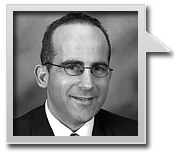Don’t Undersell Your Business Owner Clients
Stop and think. Let's do a client profile. Think of your clients who are self-employed or part owners of a small company. Now think of these business owner clients who have 15 or fewer employees and are the primary generators of their business revenue. Okay, write down their names.
If you don't have any yet, let me give you some examples: attorneys, architects, dentists, manufacturer's reps, small retail shop owners, hairstylists, physicians, chiropractors, podiatrists, salesmen, financial planners, accountants and many more.
In reviewing your client's insurance needs, have you touched on the need for business overhead expense (BOE)? Never heard of the product? BOE is a reimbursement-type disability policy for business owners and, in most cases, the premium is tax deductible.
Without proper planning, your business owner client is at great risk of having a disability virtually destroy his business. If your client is seriously injured and needs a year to be rehabilitated, he will still be obligated to pay business expenses. The rent still needs to be paid, as do the utilities, salaries of the employees, etc. Add it all up and your client's fixed costs, excluding his salary, can easily run $10,000 a month or more. In addition, when a disability occurs, personal expenses tend to go up, while income goes down. While this gap in personal finances may be partially covered by an individual disability plan, the additional expenses of the business will cause your client to make some tough choices.
Imagine this hypothetical dentist and name your disability slips on ice; develops lymphoma and needs a year of chemotherapy; gets into a serious car accident, etc. He may be out of work for a full year, maybe more. His individual DI has a 90-day elimination period, which means the monthly benefit may not actually get paid until 120 to
150 days into the disability. This is because the aggregation of the monthly benefit starts on day 91 and can continue 120 days. Then the claim forms and claim adjudication process must be completed (i.e., getting doctor statements, reviewing tax returns, and confirming that the disability is in line with the definitions of the contract). Of course, each contract and claim process is different. So let's say he starts getting his first disability check after 120 days. The $6,000 a month of individual disability most likely is not going to be enough to pay his current monthly living expenses. Remember, he had to come up with about four months of cash to cover his living expenses while waiting for his individual disability to start paying.
Now let's think about his business. He has spent more than eight years developing his patient base. Then, suddenly, he's away from his practice. Revenues from previous billings start to fall off at a rapid pace, new patients don't even consider going to the practice, and current patients have to be called to either cancel appointments or be
told about the dentist's extended leave. (If a patient has a toothache, he is not waiting for the dentist to return from a disability!)
Plus, the staff still has to be paid; and, considering the lack of job security, they will most likely start looking for new jobs. As the employees leave, who is going to do the administrative work that still needs to be done? There is great potential for this dentist's practice to fall apart.
The Catch 22 of a Disabled Self Employed Business Owner
Option 1: Sell the practice. On the surface, this appears to be a pretty easy solution. The question here is when do you sell a business? When the disability occurs, a business owner's mind is on recovery and returning to work. Most disabled business owners would never want to immediately sell a business that they spent years to develop because they believe they will eventually recover and go back to work. Unfortunately, the longer a business owner is disabled, the more the business will suffer. How attractive is our dentist's practice to a potential buyer when it is no longer profitable?
Option 2: Hire someone to run the dental practice. Seems logical, but let's go down this road. Who will be hired and how experienced is a person considering he is willing to take a job that may last only 6 to 18 months? Who will recruit this person and how well does this recruiter know the business and/or the qualifications needed to run it?
Let's say this miracle person is found, then where will the money come from to pay him? Remember, it is going to take a while to rebuild the revenue cycle and pay this expensive employe. Another
consideration is whether this person will be able to generate enough revenue for his salary as well as the expenses of the office. There is potential for the situation to get worse instead of better. (Note: Many BOE policies will not reimburse for the expense of maintaining employees that do the same job as the insured.)
Option 3: Wait it out. Our dentist physically can't do the job for at least a year. In all probability he will start using his 401(k) to pay the expenses of the business, then on to a home equity loan and credit cards. Then his credit score starts to plummet. It took him 10 years to build the practice. After a year of not working, the practice is destroyed, along with his credit.
Option 4: Proper planning with a BOE policy. If our dentist's financial advisor recommended a BOE policy for $10,000 a month of benefit for a two-year benefit period, all the qualifying expenses are then reimbursed to him, not to exceed the $10,000 a month. It can be that simple - plus the premiums can be paid by the business. Even better, if his policy has a provision that says if his expenses are less than $10,000 a month, he can carry over the amount not reimbursed to another month. Therefore, the policy becomes similar to a pot of money. In this example, $10,000 a month x 24 months is a $240,000 pot of money.
Obviously option four is the most desirable. This gives our dentist the ability to recover and still have a business that's physically intact. He still may have to rebuild his practice to the level it was in the past, but it has not been destroyed. It's ready for his eventual return.
In closing, the BOE policy buys time. Time for a business owner, family and financial advisors to make the proper business decisions that growing debt can sometimes unduly influence. BOE also helps a business owner supplement an individual disability policy - many have a false sense of security that an individual disability policy will be sufficient to protect them from the financial catastrophes of a disability.
BOE is grossly undersold, and every financial advisor should be familiar with this product and recommend it when appropriate.
Michael Cohen
Michael attended Indiana Universitys business school, graduating in 1990 with an emphasis in insurance. Since 1990, Michael has been helping brokers learn disability solutions so that they can help their clients. Michael is President of the Plus Group Illinois office and heads up a team of disability marketers and the processing unit that helps to facilitate the disability applications.
Cohen can be reached at michael@plusgroupus.com or by phone at 800-333-4340.



Recent Comments